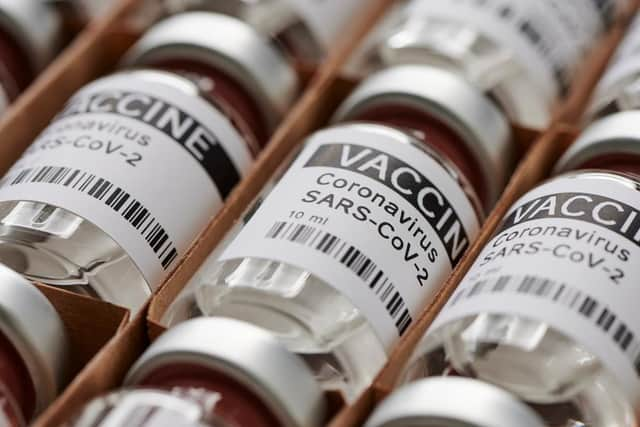Does Covid vaccine prevent Delta variant infection? Pfizer, AstraZeneca and Moderna efficacy explained
and live on Freeview channel 276
More than 40 million people in the UK have now received their first dose of the Covid vaccine.
But does the Covid vaccine prevent infection from coronavirus variants - including the Delta variant - and does this differ between jabs?
Here’s what you need to know.


Does the Covid vaccine prevent variant infection?
Advertisement
Hide AdAdvertisement
Hide AdAlthough current vaccines were designed for earlier versions of Covid-19, scientists believe that the vaccinations should still work against variants, but this could potentially be at a lower level.
New data suggests that people who have had the Pfizer vaccine have lower antibody levels targeting the Delta B.1.617.2 variant - originally found in India - than those against previously circulating variants in the UK.
The study found that after a single dose of the Pfizer jab, 79 per cent of people had a neutralising antibody response against the original Covid-19 strain, but this fell to 50 per cent for the Alpha (B.1.1.7) variant first found in Kent, and to 32 per cent for the Delta variant. It also dropped to 25 per cent for the Beta (B.1.351) variant first found in South Africa.
The research, which was carried out by the Francis Crick Institute, the National Institute for Health Research and the UCLH Biomedical Research Centre, also suggests the levels of these antibodies are lower with increasing age and that levels decline over time.
Advertisement
Hide AdAdvertisement
Hide AdExperts have said this new research provides additional evidence in support of plans to deliver a Covid vaccination boost to vulnerable people during autumn.
The data also supports plans to reduce the gap between the first and second dose of the vaccine, as the study found that after just one dose of the Pfizer jab, people are less likely to develop antibody levels against the Delta (B.1.617.2) variant.
However, another recent study carried out by Public Health England (PHE) found that for the period from 5 April to 16 May the Pfizer vaccine was 88 per cent effective against symptomatic disease from the Delta variant two weeks after the second dose.
This was compared to 93 per cent effectiveness against the Alpha (B.1.1.7) variant first found in Kent.
Advertisement
Hide AdAdvertisement
Hide AdThe same study also found that two doses of the AstraZeneca vaccine were 60 per cent effective against symptomatic disease from the Delta variant, compared to 66 per cent effectiveness against the Alpha variant.
However, both the Pfizer and AstraZeneca vaccines were found to be 33 per cent effective against symptomatic disease from the Delta variant three weeks after the first dose, compared to around 50 per cent effectiveness against the Alpha variant.
What about the Moderna vaccine?
PHE said that the numbers for who had received the Moderna vaccine, which has been used in the UK since April, were too small for them to include in their research.
However, early laboratory tests in January suggested that antibodies triggered by the Moderna vaccine can recognise and fight the Beta variant.
